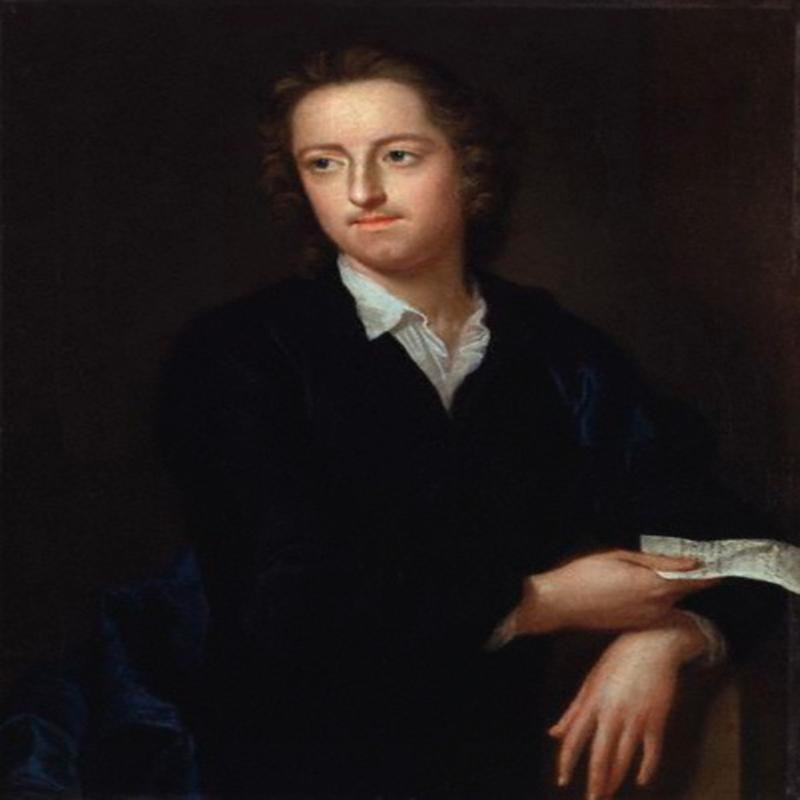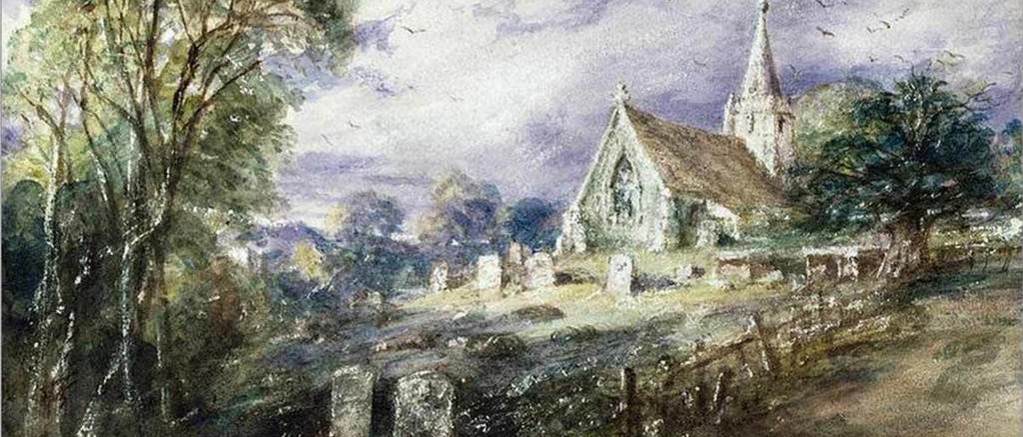Thomas Gray: Elegy Written in a Country Churchyard
Posted on 30th January 2021
Born in London on 26 December 1716, to a family prosperous enough for him to have little need of gainful employment Thomas Gray was to be a Cambridge scholar lost in his books and in love with thought not deed, who would write a little poetry from time-to-time.
Yet his Elegy Written in a Country Churchyard is considered by some to be the greatest work of verse in the English literary canon, and certainly the greatest poem of the Georgian Era.
Dealing with death, a preoccupation of the Georgians as it would later be of the Victorians, though adopting the Romantic tone of its day rather than the maudlin and insinuating religiosity of the latter it is notable for its many changes of rhythm and style and for introducing certain phrases into the English language such as - Celestial Fire, Paths of Glory, and Far from the Madding Crowd.

Gray completed his Elegy in 1750, eight years after first putting pen to paper in the graveyard of St Giles Church at Stoke Poges and it was a sensation from the moment of its publication much to its somewhat startled author’s embarrassment. Even General Wolfe was heard to remark, prior to doing so, that he would rather have written that poem than take Quebec.
Gray, who had always doubted his literary abilities thought the praise unwarranted and when offered the post of Poet Laureate on the back of ‘Elegy’ he declined it.
He died 30 July 1771, aged 52, having only written 13 poems in his lifetime.
Elegy Written in a Country Churchyard
The curfew tolls the knell of parting day,
The lowing herd wind slowly o’er the lea,
The ploughman homeward plods his weary way,
And leaves the world to darkness and to me.
Now fades the glimmering landscape on the sight,
And all the air a solemn stillness holds,
Save where the beetle wheels his droning flight,
And drowsy tinklings lull the distant folds;
Save that from yonder ivy-mantled tower
The moping owl does to the moon complain
Of such, as wandering near her secret bower,
Molest her ancient solitary reign.
Beneath those rugged elms, that yew-tree’s shade,
Where heaves the turf in many a mouldering heap,
Each in his narrow cell for ever laid,
The rude forefathers of the hamlet sleep.
The breezy call of incense-breathing morn,
The swallow twittering from the straw-built shed,
The cock’s shrill clarion, or the echoing horn,
No more shall rouse them from their lowly bed.
For them no more the blazing hearth shall burn,
Or busy housewife ply her evening care:
No children run to lisp their sire’s return,
Or climb his knees the envied kiss to share.
Oft did the harvest to their sickle yield,
Their furrow oft the stubborn glebe has broke;
How jocund did they drive their team afield!
How bowed the woods beneath their sturdy stroke!
Let not Ambition mock their useful toil,
Their homely joys, and destiny obscure;
Nor Grandeur hear with a disdainful smile,
The short and simple annals of the poor.
The boast of heraldry, the pomp of power,
And all that beauty, all that wealth e’er gave,
Awaits alike the inevitable hour.
The paths of glory lead but to the grave.
Nor you, ye proud, impute to these the fault,
If memory o’er their tomb no trophies raise,
Where through the long-drawn isle and fretted vault
The pealing anthem swells the note of praise.
Can storied urn or animated bust
Back to its mansion call the fleeting breath?
Can Honour’s voice provoke the silent dust,
Or Flattery soothe the dull cold ear of Death?
Perhaps in this neglected spot is laid
Some heart once pregnant with celestial fire,
Hands, that the rod of empire might have swayed,
Or waked to ecstasy the living lyre.
But Knowledge to their eyes her ample page
Rich with the spoils of time did ne’er unroll;
Chill Penury repressed their noble rage,
And froze the genial current of the soul.
Full many a gem of purest ray serene,
The dark unfathomed caves of ocean bear:
Full many a flower is born to blush unseen,
And waste its sweetness on the desert air.
Some village Hampden that with dauntless breast
The little tyrant of his fields withstood;
Some mute inglorious Milton here may rest,
Some Cromwell guiltless of his country’s blood.
Th’ applause of listening senates to command,
The threats of pain and ruin to despise,
To scatter plenty o’er a smiling land,
And read their history in a nation’s eyes
Their lot forbad: nor circumscribed alone
Their growing virtues, but their crimes confined;
Forbad to wade through slaughter to a throne,
And shut the gates of mercy on mankind,
The struggling pangs of conscious truth to hide,
To quench the blushes of ingenuous shame,
Or heap the shrine of Luxury and Pride
With incense kindled at the Muse’s flame.
Far from the madding crowd’s ignoble strife,
Their sober wishes never learned to stray;
Along the cool sequestered vale of life
They kept the noiseless tenor of their way.
Yet even these bones from insult to protect,
Some frail memorial still erected nigh,
With uncouth rhymes and shapeless sculpture decked,
Implores the passing tribute of a sigh.
Share this post:





